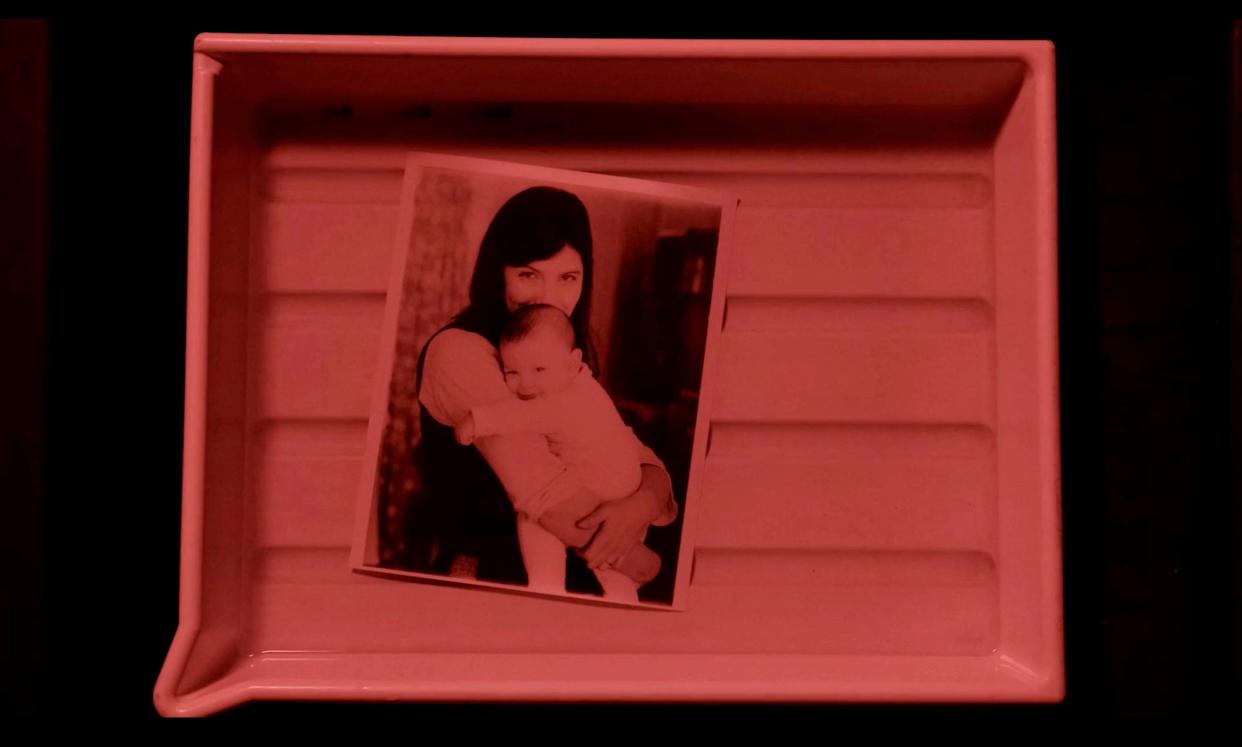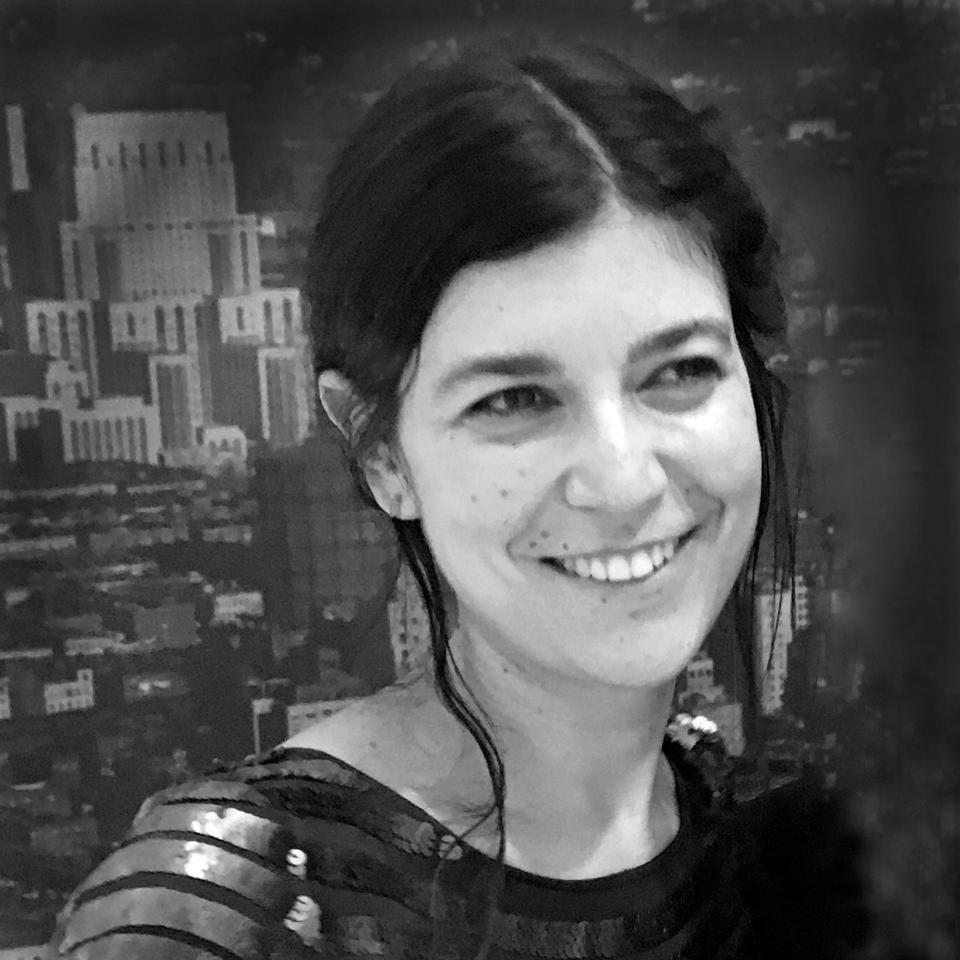This filmmaker's mother died when she was an infant. True/False film explores mom's life

When "A Photographic Memory" enjoys its world premiere at this year's True/False Film Fest, Rachel Elizabeth Seed wants audiences to feel as though they've been in the same room as her mother.
This is the exact feeling Seed chased, and the same presence she craved, all her life.
A renowned photographer and journalist, Sheila Turner-Seed died from an aneurysm at age 42, when her daughter was just 20 months old. Growing into her own talents as a storyteller, Rachel Seed spent more than a decade sifting her mother's archives of images and interviews with the world's great photographers, determined to complete her portrait of an artist with much still to show us and of a mother gone too soon.
The result of her labor, "A Photographic Memory" covers remarkable ground as we too take in Turner-Seed's images and eavesdrop on conversations with the likes of Henri Cartier-Bresson and Gordon Parks.
Those moments thrilled Rachel Seed, as they will anyone who harbors an abiding love of the image. But the filmmaker's true interest rests with the fine details inside each frame: what her mother looked like, sounded like, the very things she liked.
"I think more than anything, in this primal, real physical sense, I just wanted to spend time with my mother. I wanted to get what I missed, which was this everyday relationship with her," she said.
A mother's voice, a daughter's pursuit
Seed carried a serious resumé and sharp instincts to "A Photographic Memory." A former New York Magazine photo editor and a collaborator on several previous nonfiction films, she cherishes human stories that exhibit the strange, wonderful nature of our living.
The word camera is a synonym for connection in Seed's work; The Motherless Project, a previous body of photography stretching from 2006 to 2011, invested a sacred gaze on 40 women and girls who lost their own mothers young. Though the images are still and silent, Seed looks back fondly on the strength of her witness and the depth of relationships she formed.
To hear Seed tell it, making her first feature involved a series of humble epiphanies and also resembled deep tissue massage, the director working out every creative knot in unhurried fashion.
Hearing her mother's voice, a timbre lost to time and memory, while sitting in another photographer's office clarified the project.
"It was when I had the moment of hearing her voice that, in a flash, the entire film came to me," Seed said. "... It was sort of like an order from another realm. I feel like I’ve been following that ever since that moment."
With the material of an entire life at her fingers, Seed knows the movie could have traveled countless directions, taken any manner of focus. But her feelings at the sound of her mother's voice raised a series of questions, questions she pursued across every frame.
Was Sheila Turner-Seed still somehow alive in these creative artifacts? And if so, could a daughter truly know her mother there?
Turner-Seed's creative achievements matter to her daughter. But, Seed said, the small things still loom largest: the artist's candid comments on her work, casual banter with other photographers, quips about her astrological sign — all committed to the tape. Here, sound means more than image, or at least forms the intimate image Seed holds.
"Of course, she interviewed the greatest photographers in the world and that’s amazing. And as a photographer myself, I was fascinated by that," she said of her mother. "But really it was the vibration of her voice that allowed me to reconnect with her."
Naturally caught up in her mother's story, she recalibrated a bit after thoughtful feedback from colleagues at the Sundance Labs, who not only wanted to learn about Sheila Turner-Seed but feel they were discovering something about Seed herself.
She dug deeper than she could have imagined to become something more than a silent observer off-screen, she said.
Finishing the portrait

Seed created her own gauntlet with "A Photographic Memory," she said; she needed to do this particular work before moving to other stories. And, Seed recalls now with the hint of a smile in her voice, friends and family members quietly expressed their worries she might never finish the film.
She derived the ability to call the film complete from two sources: looming screenings at festivals such as True/False ("I think deadlines are good for artists," Seed said, laughing) and a sense of inner peace over what the film became.
Working in the presence of inspiring, inspired women buoyed her. Of course, her mother's likeness stretched across the project; Seed also took creative cues from executive producer Kirsten Johnson, a familiar face to True/False audiences. Johnson's films "Cameraperson" and "Dick Johnson is Dead" remain festival high-water marks.
Johnson's innate generosity and creative fearlessness made Seed attend those same qualities inside herself, she said.
The director approaches the close of one chapter, and opening of several more, with a renewed sense that she can do nearly anything with a camera in hand, she said.
"I can’t imagine a more challenging creative project for me personally to do," Seed said. "... It’s just given me an immense feeling of relief and confidence that I was able to do it and achieve this goal that sometimes seemed insurmountable."
"A Photographic Memory" will screen at 6:45 p.m. Friday at The Blue Note; 5:45 p.m. Saturday at Jesse Auditorium; and 7:30 p.m. Sunday at Missouri Theatre. Check remaining ticket options and see the full festival lineup at https://truefalse.org/. Learn more about Seed and her work at https://www.rachelseed.com/.
Aarik Danielsen is the features and culture editor for the Tribune. Contact him at adanielsen@columbiatribune.com or by calling 573-815-1731. He's on Twitter/X @aarikdanielsen.
This article originally appeared on Columbia Daily Tribune: True/False filmmaker creates moving image of her photographer mother

